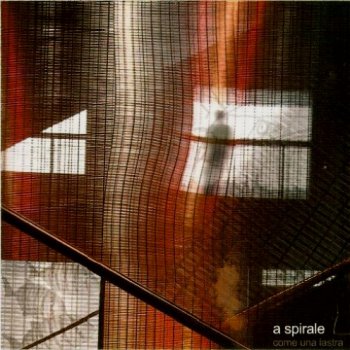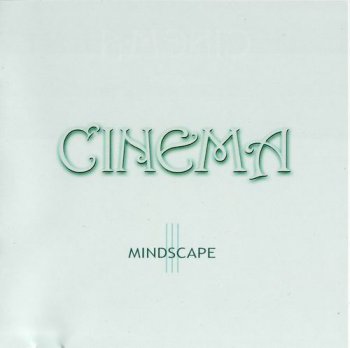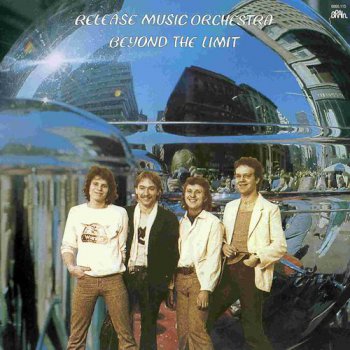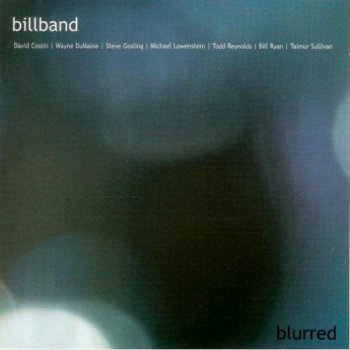The Lovin' Spoonful: 5 Albums - Mini LP Blu-spec CD2 Sony Music Japan 2016
Lossless Galaxy Release The Lovin' Spoonful: 5 Albums Mini LP Blu-spec CD2 Sony Music Japan 2016 Performer: The Lovin' Spoonful Box / Albums: 1965 Do You Believe In Magic • 1966 Daydream 1966 Hums Of The Lovin' Spoonful • 1967 Everything Playing 1968 The Best Of The Lovin' Spoonful Volume 2 (Mini LP Blu-spec CD2 Sony Music Japan 2016) Info: Kama Sutra / Sony Music Japan Cardboard Sleeve (Mini LP) / Blu-spec CD2 Mono Stereo / Limited Release Catalog CDs: SICP-31006~10 Made in Japan Dynamic

The Lovin' Spoonful: 5 Albums - Mini LP Blu-spec CD2 Sony Music Japan 2016
Lossless Galaxy Release The Lovin' Spoonful: 5 Albums Mini LP Blu-spec CD2 Sony Music Japan 2016 Performer: The Lovin' Spoonful Box / Albums: 1965 Do You Believe In Magic • 1966 Daydream 1966 Hums Of The Lovin' Spoonful • 1967 Everything Playing 1968 The Best Of The Lovin' Spoonful Volume 2 (Mini LP Blu-spec CD2 Sony Music Japan 2016) Info: Kama Sutra / Sony Music Japan Cardboard Sleeve (Mini LP) / Blu-spec CD2 Mono Stereo / Limited Release Catalog CDs: SICP-31006~10 Made in Japan Dynamic
06 10, 2025
Kraftwerk: 2017 3-D The Catalogue - 8CD Box Set Parlophone Records
Lossless Galaxy Release Kraftwerk: 2017 3-D The Catalogue 8CD Box Set Parlophone Records Performer: Kraftwerk Box / Albums: 2017 3-D The Catalogue 1974 Autobahn ● 1975 Radio-Activity ● 1977 Trans Europe Express 1978 The Man-Machine ● 1981 Computer World ● 1986 Techno Pop 1991 The Mix ● 2003 Tour De France (8CD Box Set Parlophone Records Box Set Parlophone Records) Info: Parlophone Records / Klingklang Produkt Ralf Hütter Catalog Box: 0190295873424 Catalog CDs: 0190295873417 • 0190295873400 •
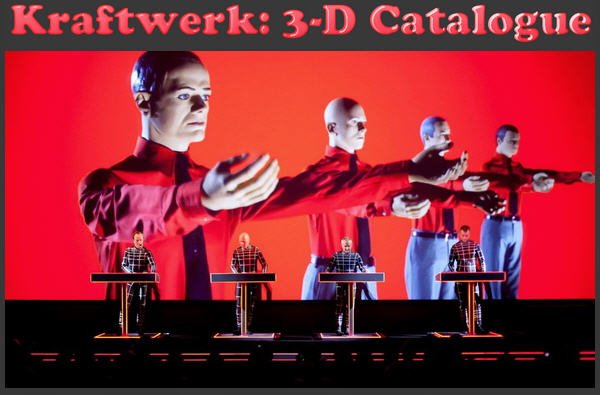
Kraftwerk: 2017 3-D The Catalogue - 8CD Box Set Parlophone Records
Lossless Galaxy Release Kraftwerk: 2017 3-D The Catalogue 8CD Box Set Parlophone Records Performer: Kraftwerk Box / Albums: 2017 3-D The Catalogue 1974 Autobahn ● 1975 Radio-Activity ● 1977 Trans Europe Express 1978 The Man-Machine ● 1981 Computer World ● 1986 Techno Pop 1991 The Mix ● 2003 Tour De France (8CD Box Set Parlophone Records Box Set Parlophone Records) Info: Parlophone Records / Klingklang Produkt Ralf Hütter Catalog Box: 0190295873424 Catalog CDs: 0190295873417 • 0190295873400 •
06 10, 2025
GOOD OLD ROCK’N’ROLL!!! «Exclusive for Lossless-Galaxy collection» Part 3 (38 × CD • Remastered • 1960-2025)
Performer: Various Album / collection: «OLDER! Rock’N’Roll — 1St Press — Remastered» Part 3 Label: (c)(p) 1960-2025 生産ヨーロッパとアメリカ Source: Rip by KoGGaN™ scans by inet… Official DR value: •12•12•7•14•11•6•11•8•8•7•8•7•8•12•10•8/8•6•9•8•10•10•9•8•7•7• •9•8•8/8•10•10•15•13•13•12•13•12•6•9• Catalog (Barcode): much… Genre / Style: Pop, Rock, Classic Rock, Pop Rock, Rock’N’Roll, Glam, AOR Year (info): 1960-2025 (38 × CD, 1St Press + Remastered, Collection—) Format: WV (image + .cue) Bitrate: lossless

GOOD OLD ROCK’N’ROLL!!! «Exclusive for Lossless-Galaxy collection» Part 3 (38 × CD • Remastered • 1960-2025)
Performer: Various Album / collection: «OLDER! Rock’N’Roll — 1St Press — Remastered» Part 3 Label: (c)(p) 1960-2025 生産ヨーロッパとアメリカ Source: Rip by KoGGaN™ scans by inet… Official DR value: •12•12•7•14•11•6•11•8•8•7•8•7•8•12•10•8/8•6•9•8•10•10•9•8•7•7• •9•8•8/8•10•10•15•13•13•12•13•12•6•9• Catalog (Barcode): much… Genre / Style: Pop, Rock, Classic Rock, Pop Rock, Rock’N’Roll, Glam, AOR Year (info): 1960-2025 (38 × CD, 1St Press + Remastered, Collection—) Format: WV (image + .cue) Bitrate: lossless
06 10, 2025
Жанры
Lossless Galaxy Release
Русская музыка
--Поп
--Рок
--Панк
--Альтернатива
--Металл
--Рэп, Хип-Хоп, R'n'B
--Джаз и Блюз
--Фолк
--Шансон, Авторская песня
--СССР
Зарубежная музыка
--Pop
--Rock
--Hard Rock
--Progressive & Art-Rock
--Pop-Rock & Soft Rock
--Instrumental Rock
--Heavy, Traditional, Industrial Metal
--Power, Gothic, Sympho Metal
--Thrash, Speed, Groove, Modern Metal
--Death, Melodic Death, Doom, Dark Metal
--Black, Pagan, Folk, Viking Metal
--Alternative
--Punk
--Disco, Eurodance
--Rap, Hip Hop, R'n'B
--Reggae, Ska, Dub
--Jazz, Blues, Soul
--Folk, Country, Ethnic
--Electronic, Ambient, New Wave
--House, Techno, Trance
Другие жанры
--New Age, Relax, Meditative & Flamenco
--Chillout, Lounge, Downtempo, Trip-Hop
--Drum & Bass, Jungle, Breakbeat, IDM
--Classical / Классическая музыка
--Soundtrack
--Музыкальные сказки
Vinyl Rip
HI-Res / DVD-Audio / DTS
--SACD
--DSD
--DVD-Audio
Сборники Lossless-Galaxy
Альбомы 2022
Альбомы 2023
Альбомы 2024
Теги
1st Press 2022 2023 2024 2025 70... AOR Black Metal Blues Blues Rock Bootleg Series Classic Rock Death Metal Discography Exclusive for Lossless-Galaxy Folk Rock Fusion Hard Rock Heavy Metal Hi-Res Japanese Edition Jazz Jazz Rock lossless Melodic Death Metal Melodic Rock Modern Electric Blues Pop Pop Rock Power Metal Prog Rock Progressive Metal Progressive Rock Psych Rock Psychedelic Rock Rock SACD Symphonic Metal Thrash Metal Дискографии от KoGGaN
Архивы
Опрос
В каком формате хотели бы видеть релизы на сайте ?
 Автор: Hergest Ridge, 31 июля 2010, Комментариев: 1, Просмотров: 1 507
Автор: Hergest Ridge, 31 июля 2010, Комментариев: 1, Просмотров: 1 507A Spirale -Come Una Lastra-2004
Artist: A Spirale
Album: Come Una Lastra
Year: 2004
Country : Italy
label : Lizard CD 031
Style: Progressive Rock
Genre: Avant-chamber, chamber symphonic rock, RIO.
Format: ape (image) with cue , EAC log.
Size: 194 MB (5 % recovery)
Source: tracker (lindinalwa)
Album: Come Una Lastra
Year: 2004
Country : Italy
label : Lizard CD 031
Style: Progressive Rock
Genre: Avant-chamber, chamber symphonic rock, RIO.
Format: ape (image) with cue , EAC log.
Size: 194 MB (5 % recovery)
Source: tracker (lindinalwa)
Progressor review:
What arrested my attention first of all is that according to the CD booklet and its press kit alike, such an important if not necessary instrument as bass isn't part of the band's equipment, and there is the unexplainable absence of violoncello, guitar synthesizer and bass pedals. The saxophone is alto, and the other wind instrument isn't a bass clarinet (sorry for the awkward phrase). Yet, in spite of all this, the bass-like solos are clearly heard on each of the eight tracks, at least in places. In any case, the sound is firmly dense everywhere it has to be dense. Of course, I'm implying all intensive arrangements, and Addensantesi is the only track here that is moderately calm in its entirety.
There are no harsh guitar solos and powerful drums here, and are, instead, passages of semi-acoustic guitar and solos of congas in ever changing interaction with the parts of clarinet and violin. The music is strikingly unique, as well as everywhere on the album, but being made up of the more familiar structures, is easier recognizable and determinable and is a chamber symphonic Rock with elements of RIO and some Oriental flavor. The composition at the end of the album, Requiem, is something average between the classical and avant-garde kinds of Academic music with elements of Noise Rock (which can be found also on Mojave and Out of the Blue). In the teeth of its title, the track doesn't have a mournful feel to it and even has less dark colors and shades in its musical palette than the others. There are some differences between the remaining six compositions, and I'll point them out below. Overall, however, all of them are entities of the youngest progressive genre, which I call Fifth Element instead of using the widespread, but rather indistinct term New Music. The fraternal direction is RIO, yet, it isn't the sole determinant in this case, being just one of the constituents of the general stylistics, which is too polymorphous and unusual to be squeezed into the framework of any of the traditionally determinable progressive genres. Here, the Classical academic music-related chamber Rock, RIO, a dark Techno Metal and some atypical features are all blended into the unique whole. Some traces of folk music of an uncertain origin are nearly on each track, but they are obscure, with the aforementioned Addensantesi being the only exception in this respect. Out of the Blue and Tutto si Versa Fuori are less heavier than the others, while Mojave, Giappone, 31 Salvitutti and Shitting Everywhere have some absolutely killer guitar riffing, which I really didn't expect to work so well with violin and clarinet. On a structural level, it's something like Henry Cow's "Western Culture" meets "Into the Pandemonium" by Celtic Frost or Finnegan's Wake at their heaviest, but with even harsher and faster arrangements. The music is often wildly eclectic and intensive, especially when moving through a barrage of twisted and frenzied key changes. In all, however, the quantity of harmonious and angular melodies on the album is approximately equal.
It's great to know that the new generation of serious progressive musicians does really exist and follows the best traditions of our beloved genre by the dictates of their hearts and regardless of any difficulties, thanks to which it will never sink to oblivion. "Come Una Lastra" will bring a lot of pleasure to anyone acquainted with the magic of gradually getting into highly complicated music. I am bowing to A Signale for bravely paving new progressive paths, and all my best wishes go to their further creation.
What arrested my attention first of all is that according to the CD booklet and its press kit alike, such an important if not necessary instrument as bass isn't part of the band's equipment, and there is the unexplainable absence of violoncello, guitar synthesizer and bass pedals. The saxophone is alto, and the other wind instrument isn't a bass clarinet (sorry for the awkward phrase). Yet, in spite of all this, the bass-like solos are clearly heard on each of the eight tracks, at least in places. In any case, the sound is firmly dense everywhere it has to be dense. Of course, I'm implying all intensive arrangements, and Addensantesi is the only track here that is moderately calm in its entirety.
There are no harsh guitar solos and powerful drums here, and are, instead, passages of semi-acoustic guitar and solos of congas in ever changing interaction with the parts of clarinet and violin. The music is strikingly unique, as well as everywhere on the album, but being made up of the more familiar structures, is easier recognizable and determinable and is a chamber symphonic Rock with elements of RIO and some Oriental flavor. The composition at the end of the album, Requiem, is something average between the classical and avant-garde kinds of Academic music with elements of Noise Rock (which can be found also on Mojave and Out of the Blue). In the teeth of its title, the track doesn't have a mournful feel to it and even has less dark colors and shades in its musical palette than the others. There are some differences between the remaining six compositions, and I'll point them out below. Overall, however, all of them are entities of the youngest progressive genre, which I call Fifth Element instead of using the widespread, but rather indistinct term New Music. The fraternal direction is RIO, yet, it isn't the sole determinant in this case, being just one of the constituents of the general stylistics, which is too polymorphous and unusual to be squeezed into the framework of any of the traditionally determinable progressive genres. Here, the Classical academic music-related chamber Rock, RIO, a dark Techno Metal and some atypical features are all blended into the unique whole. Some traces of folk music of an uncertain origin are nearly on each track, but they are obscure, with the aforementioned Addensantesi being the only exception in this respect. Out of the Blue and Tutto si Versa Fuori are less heavier than the others, while Mojave, Giappone, 31 Salvitutti and Shitting Everywhere have some absolutely killer guitar riffing, which I really didn't expect to work so well with violin and clarinet. On a structural level, it's something like Henry Cow's "Western Culture" meets "Into the Pandemonium" by Celtic Frost or Finnegan's Wake at their heaviest, but with even harsher and faster arrangements. The music is often wildly eclectic and intensive, especially when moving through a barrage of twisted and frenzied key changes. In all, however, the quantity of harmonious and angular melodies on the album is approximately equal.
It's great to know that the new generation of serious progressive musicians does really exist and follows the best traditions of our beloved genre by the dictates of their hearts and regardless of any difficulties, thanks to which it will never sink to oblivion. "Come Una Lastra" will bring a lot of pleasure to anyone acquainted with the magic of gradually getting into highly complicated music. I am bowing to A Signale for bravely paving new progressive paths, and all my best wishes go to their further creation.
Track List:
1. Mojave 6:39
2. Giappone 3:44
3. 31 Salvitutti 3:48
4. Addensantesi 4:54
5. Out of the Blue 6:11
6. Shitting Everywhere 3:10
7. Tutto si Versa Fuori 4:25
8. Requiem 6:34
total 39 min
Line Up:
Massimo Spezzaferro - drums
Maurizio Argenziano - guitars
Mario Gabola - saxophone & clarinet
Anita Furlani - viola & violin
Links:
MEGAUPLOAD:
Внимание! У Вас нет прав для просмотра скрытого текста.
HOTFILE:
Внимание! У Вас нет прав для просмотра скрытого текста.
Похожие новости:
Комментарии (1)
Добавить комментарий!
Информация
Посетители, находящиеся в группе Гости, не могут оставлять комментарии к данной публикации.
